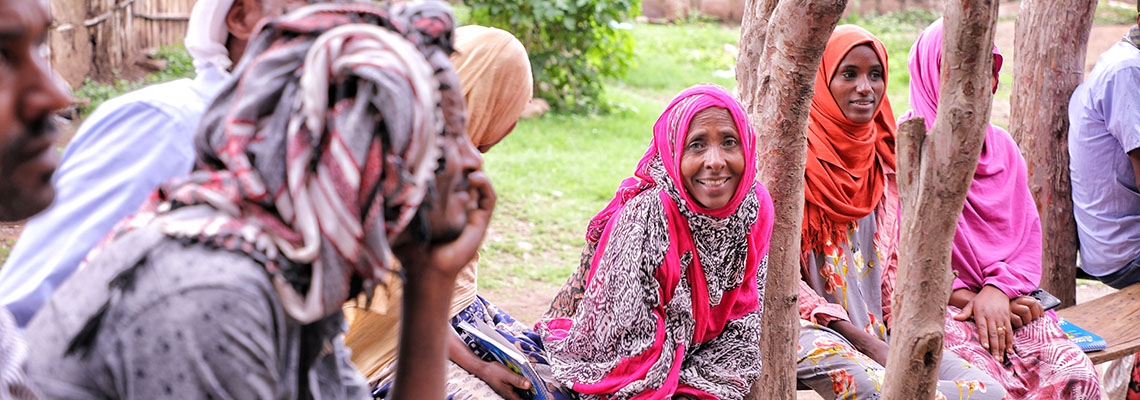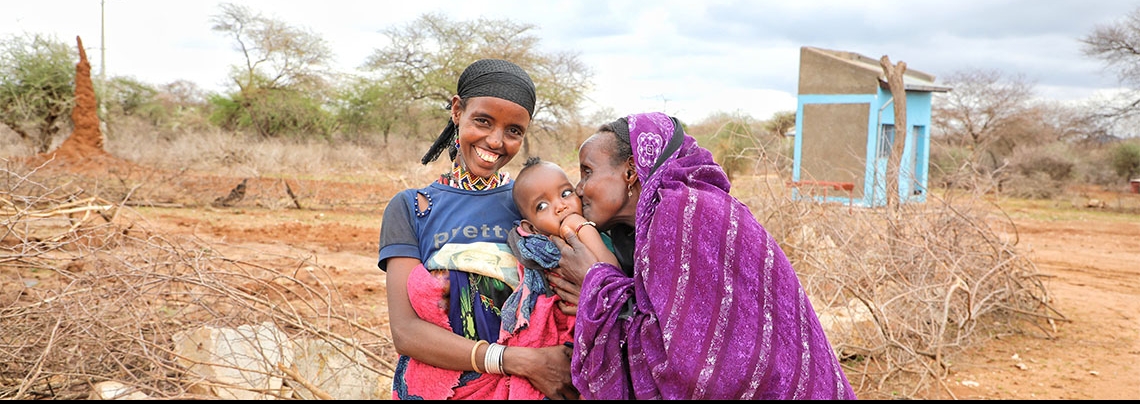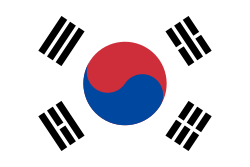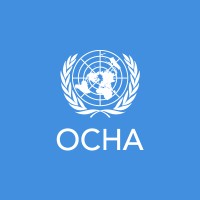IOM Vision
IOM Ethiopia focuses on supporting crisis-affected populations in Ethiopia, including vulnerable migrants and returnees, addressing immediate humanitarian needs, while undertaking longer-term actions to build resilience and foster sustainable peace and development.
Objective
Saving lives and protecting people on the move
IOM seeks to provide humanitarian assistance to 2,528,000 displacement-affected people, including IDPs and host communities. People targeted include 45,000 refugees assisted with relocation assistance. Through the ES/NFI and CCCM Clusters, IOM also continues to support cluster partners (international and national NGOs (I/NNGOs), other UN agencies, and national and regional government authorities). In addition, IOM aims to support 127,000 vulnerable migrant returnees to Ethiopia, including with food, WASH, NFIs, health/nutrition, MHPSS and protection support.
In line with CWG recommendations, IOM:
- Provides multi-purpose cash transfer (MPCT) assistance to crisis-affected populations to cover basic needs such as emergency food, livelihoods, shelter, WASH, as well as transportation costs.
Considering that IDPs are on the move and that needs of affected people are diverse, unconditional cash-based assistance enables beneficiaries to prioritize their most pressing needs in a dignified manner. IOM implements MPCT programming directly and through RRF sub-granting to international and national NGOs.
IOM supports CCCM along four pillars of response through:
- Supporting camp coordination and information management;
- Conducting site planning, development, maintenance and upgrading of communal structures or infrastructure;
- Establishing community representative structures for IDPs and strengthening community participation; and
- Building the capacity of CCCM partners on basic CCCM concepts and practices. IOM implements CCCM programming directly and through RRF sub-granting to international and national NGOs.
In order to support health outcomes, IOM plans to:
- Deliver comprehensive lifesaving primary health care (PHC) and nutrition services, integrating mental health and psychosocial support services and gender-based violence (GBV) risk mitigation for vulnerable populations in priority areas.
- Support government health facilities by deploying mobile health and nutrition teams. The scope of IOM’s PHC services includes medical consultations, routine vaccination, nutrition screening including management of malnutrition, health promotion, and education at facility and community levels. Comprehensive reproductive health care services to women in the reproductive age group are provided including antenatal, delivery, family planning services, and postnatal care and referral.
IOM provides comprehensive, integrated and community-based MHPSS services that promote resilience, mental health and overall well-being of crisis-affected populations, including through:
- Deployment of Psychosocial mobile teams (PMTs) to mobile and static locations for direct service provision. Direct services provided by the PMTs include group counselling, referral to specialized mental health services for affected people with mental disorders, and socio-relational and recreational activities (such as sport and play, creative and art-based activities or cultural activities) to re-build the supportive social network of the affected population.
Activities are aligned with the Inter-Agency Standing Committee (IASC) pyramid of intervention, covering all four levels as well as IOM’s Manual on Community-based MHPSS in Emergencies and Displacement.
In coordination with UNHCR, the government, and other partners, IOM will provide:
- Relocation assistance and protection in a timely, safe, voluntary and dignified manner for emergency movement assistance from points of entry (PoEs) to designated camps in Ethiopia, as well as relocation between camps. An effective feedback mechanism is in place to ensure that beneficiaries receive adequate and timely information about access to travel and movement assistance. Experienced medical and operations staff are deployed in operational areas to ensure their safety and dignity.
- Onward Transportation Assistance (OTA) from the Metema point of entry (and other points of entry as needs arise) to 100,000 Ethiopian returnees to reach their home communities. Upon arrival in Addis Ababa, IOM will provide accommodation for vulnerable Ethiopian migrants awaiting further transportation to return to their home communities at its Transit Centres.
- Transportation support for 4,000 vulnerable third country nationals, including road transportation from Metema to Gondar or Bahir Dar and onward flights to Addis Ababa. Where needed, IOM will provide accommodation at hotels before onward travel to Addis Ababa. Vulnerable third country nationals will be supported with Assisted Voluntary Return to their home countries (estimated at 5% of targeted caseload), including accommodation at its Transit Centre in Addis Ababa prior to departure.
- Protection related transport and pre-travel health screening assistance for a targeted 85,000 refugees that are expected to arrive in Ethiopia fleeing clashes in Sudan. This assistance will ensure their safe and secure transportation from the border to the designated location/camps. IOM will work in close coordination with Ethiopia’s Agency for Refugees and Returnees Services (RRS) and the UN Refugee Agency (UNHCR).
IOM adheres to a risk-reduction approach to protection and delivers three inter-related and mutually supporting protection interventions:
- Through a case management approach, IOM addresses the needs of populations facing protection violations and risks, with a focus on GBV survivors, those at risk of GBV, and persons with specific needs (older persons and persons with disabilities, among others);
- IOM strengthens the capacities and knowledge of the rights of impacted groups and communities, with interventions aimed at supporting community-based protection mechanisms and reducing barriers to services, through a Do No Harm approach;
- IOM mainstreams protection (including GBV risk mitigation, Disability Inclusion, and Prevention against Sexual Exploitation and Abuse) through all interventions by capacitating frontline staff in identifying protection and GBV risks, responding to disclosures of protection and GBV incidents and devising sector-specific risk mitigation measures.
To strengthen the protection response to vulnerable returning migrants at air and land PoEs, IOM:
- Provides multi-sectoral assistance including shelter, NFIs, WASH, Multi-Purpose Cash Transfer (MPCT), movement assistance, basic medical assistance and MHPSS support, both in IOM-run Migrant Response Centres and in support of government-run shelters.
To support the provision of water, sanitation and hygiene, IOM will:
- Provide potable water through emergency water trucking, construct new and rehabilitate existing water supply schemes and sanitation facilities, procure and distribute WASH-related essential non-food items and water treatment chemicals, and promote hygiene awareness among displacement-affected populations and host communities. IOM’s WASH support also includes the construction of household latrines for returnees through in-kind and cash-based interventions.
IOM implements WASH programming directly and through RRF sub-granting to international and national NGOs.
In order to support the shelter, settlements and non-food item needs of affected populations, IOM will:
- Provide in-kind emergency shelter, essential non-food household items, cash-for-rent, repair and maintenance of household and emergency communal shelters for displacement-affected populations, returnees, drought-impacted households and host communities.
- In areas where markets have been impacted by crises, market fairs with vouchers or cash for NFIs will be piloted.
IOM implements shelter programming directly and through RRF sub-granting to international and national NGOs. The RRF maintains an ES/NFI pipeline to support Cluster partners to rapidly respond to urgent needs. As ES/NFI Cluster coordinator, IOM further aims to strengthen Cluster coordination, and continue to provide strategic and technical guidance and support to Cluster partners.
IOM is supporting the Government of Ethiopia to strengthen humanitarian border management, including through:
- Border patrol/rescue missions, joint border patrolling exercises, migration protection and referral training for border officials.

Objective
Driving solutions to displacement
IOM seeks to support progress towards durable solutions, focusing on IDPs in protracted displacement and returning IDPs, contributing to wider efforts to promote sustainable peace and development. IOM collaborates with community actors, such as women's peace committees as agents of change and marginalized groups, as well as relevant governmental and non-governmental stakeholders to promote inclusive peacebuilding processes and strengthen the institutional capacity of local actors.
IOM targets government health and MHPSS actors, contributing to the surveillance and management of outbreaks and a strengthened MHPSS capacity as part of a unified health and mobility management approach. IOM furthermore supports local government structures and communities affected by displacement or at risk of displacement due to natural hazards in its disaster risk reduction work. IOM also works closely with affected communities to strengthen WASH preparedness efforts.
IOM supports climate and conflict-affected communities across Ethiopia to re-establish social, economic and governance structures. IOM will:
- Implement inclusive governance dialogues and capacity building to ensure community-driven solutions and recovery through the community-based planning (CBP) approach. The CBP approach allows communities to address their self-identified, multi-sectoral recovery priorities, including for example the rehabilitation of community infrastructures, such as WASH infrastructure, schools or health posts, as well as livelihoods, natural resource management or social cohesion efforts.
- Support sustainable livelihoods and economic activities through on-farm (horticulture, beekeeping, pastoralism) and off-farm (entrepreneurship, enterprise development) interventions for affected communities to improve their socioeconomic conditions and strengthen their local integration, with a particular emphasis on the socioeconomic empowerment of marginalized groups such as women and youth.
In support of the UN Secretary General’s Action Agenda on Internal Displacement and recognizing that Ethiopia is one of the “focus” countries of the SG’s Special Advisor on Solutions to Internal Displacement, IOM is supporting the coordination and implementation of the Durable Solutions Initiative (DSI) Ethiopia, jointly launched by the Government of Ethiopia (GoE) and the UN in December 2019 to progressively resolve displacement situations in the country. IOM will:
- Co-chair and support federal, regional, and zonal DSWGs;
- Provide technical support and institutional capacity-building to federal and regional governments, and advocate for principled durable solutions programming.
- Run intention surveys on IDPs intention to relocate, locally integrate or return to their place of origin.
- Facilitate IDPs preferred durable solution pathway (relocation, local integration, return to their place of origin), with the support of the government.
- Support IDPs/returnees through CBP approaches to attain durable solutions.
Given the fragility of state and community structures, IOM supports national processes to promote peace and reconciliation and the building of an inclusive peace infrastructure and dispute resolution mechanisms. IOM will:
- Work closely with the Ministry of Peace at the federal level and with the Security and Admin Bureaus at the regional level to support the development of national and regional peacebuilding strategies, including on mitigation of hate speech.
- Support institutional capacity-building on conflict prevention, including conflict early warning systems, as well as customary and local conflict resolution mechanisms.
- Organize interactive socio-cultural and sporting activities such as theatre events, musical events, coffee ceremonies and football matches to foster social cohesion among various ethnic groups, including marginalized community members such as youth and women, and to strengthen the social contract between community members and the government.
In response to the drought in southern Ethiopia and in post-crisis contexts, IOM is looking for more permanent solutions for water shortages including through:
- Rehabilitation of large- and small-scale non-functional water schemes or the drilling of new boreholes.
- Electrification or solarization of the water schemes for more efficiency and cost-effectiveness.
- Working with local Water Committees to strengthen governance for WASH infrastructure, and improve operations and maintenance for newly installed or rehabilitated infrastructure.
- Provides hygiene and health promotion activities, in coordination with the health team, to contain the spread of water-borne diseases.
These activities are implemented in coordination with emergency WASH activities to respond to the needs of impacted communities and help them endure future shocks. IOM implements WASH programming directly and through RRF sub-granting to international and national NGOs.
IOM Ethiopia continues to support the recovery and strengthening of resilient health systems with the aim to move from the direct provision of essential services through IOM, to more comprehensive health services through bolstered national capacity. IOM support includes:
- Capacity-building for government health workers and partners, procurement of essential medicines and supplies and rehabilitation or construction of damaged health facilities, particularly in conflict-affected areas.
IOM provides Mental Health and Psychosocial Support (MHPSS) at the individual, family and community levels, contributing to wider efforts to mend social fabrics and strengthen social cohesion. Supported community engagement activities include:
- Socio-relational and recreational activities, peer-support group activities, and celebration of holidays and other relevant events, such as World Mental Health Day in order to raise awareness on MHPSS.
IOM works closely with relevant government institutions and partners to address post-conflict land and property issues. IOM’s approach looks at land and property restitution as well as the rehabilitation and reconstruction of damaged infrastructure as part of a broader reconciliation process. IOM supports detailed assessments to ascertain needs, evaluates the cost of rehabilitations, and engages communities and local authorities through dialogues and capacity-building.
Objective
Strengthen preparedness and reduce disaster risk
To strengthen preparedness and reduce disaster risks IOM supports local government structures and communities affected by displacement or at risk of displacement due to natural hazards in its disaster risk reduction work. IOM also works closely with affected communities to strengthen WASH preparedness efforts. Furthermore, IOM targets government health and MHPSS actors, contributing to the surveillance and management of outbreaks and strengthened MHPSS capacity as part of a unified health and mobility management approach.
IOM works to prevent and/or mitigate displacement related to natural hazards and climate change through improved disaster risk management, preparedness and response. Proposed activities include:
- Research, hazard mapping and multi-hazard risk assessments, establishing community-based disaster risk management committees, including early warning systems, dialogue initiatives on mobility, risks, and resilience, and capacity-building of government on risk-informed policies and strategies, protection measures and policy development.
In areas prone to flooding and drought, IOM through RRF sub-granting to national NGOs, works with local communities to:
- Map risk areas and support community-based planning to improve community preparedness. Communities work to identify potential problems and then re-enforce water and sanitation systems to withstand known hazards in the community.
IOM continues to support the Government of Ethiopia to strengthen health system preparedness, detection and response capacities, in particular relating to disease surveillance at borders and in communities, outbreak case management and risk communication and community engagement (RCCE). This includes:
- Active participation in preparedness and response national technical working groups, such as for the Cholera and Ebola virus disease. For instance, in 2022, these forums have coordinated the response to a Cholera outbreak in Bale Zone, Oromia region.
To strengthen systems for mental health and psychosocial support in Ethiopia, IOM is:
- Supporting capacity-building for government workers and partners on MhGAP and other priority topics, deployment of community workers for MHPSS awareness-raising, rehabilitation or construction of one-stop centres where MHPSS services will be available, and procurement of psychotropics for government facilities.
Objective
Contribute to an evidence-based and efficient crisis response system
IOM’s Displacement Tracking Matrix (DTM) provides the GoE, humanitarian and development partners, as well as donors and other relevant stakeholders with a reliable and useful evidence base for planning, advocacy, and response. Since its launch in September 2016 in Ethiopia, the DTM has grown to be a fully integrated component of Ethiopia’s national and sub-national information management architecture. It is the only official source of data on internal displacement in the country, the primary source of data used by the humanitarian community to inform the HNO/HRP, and is also used to inform durable solutions work, among others.
IOM’s DTM regularly and systematically monitors human mobility within Ethiopia to provide insights into the location, vulnerabilities, demographic breakdown and needs of displaced and mobile populations to enable evidence-based responses by IOM and other humanitarian and development partners. DTM’s data collection activities include:
- Quarterly Site Assessment (SA) and Village Assessment Survey (VAS) to assess the multi-sectoral needs of IDPs and returning IDPs, as well as the absorption capacity of return communities;
- Weekly Event Tracking Tool capturing sudden population movements to ensure partners have up to date information to respond;
- Household Level Surveys to delve deeper into thematic concerns such as drought and returns.
- Flow Monitoring captures inter-and intra-regional migration flows daily at key identified transit locations to inform development programming, including migrant assistance and protection programming;
- DTM also provides technical capacity building on DTM tools and data protection for government and partners to improve data management and technical capacity.
IOM will focus on enhancing the capacities of local actors to respond to migration management challenges on the Eastern Route through capacity development, including training and operational support to local NGOs and other responders, advocacy and coordination among partners. IOM will furthermore support government entities with equipment and infrastructure enhancements after conducting an organizational capacity assessment for the regional partnership coalitions on migration in 12 regions.
Ethiopia
The map used here is for illustration purposes only. Names and boundaries do not imply official endorsement or acceptance by IOM.
Figures are as of 31 December 2023. For more details of IOM's operational capacity in country, please see the IOM Capacity section.


























